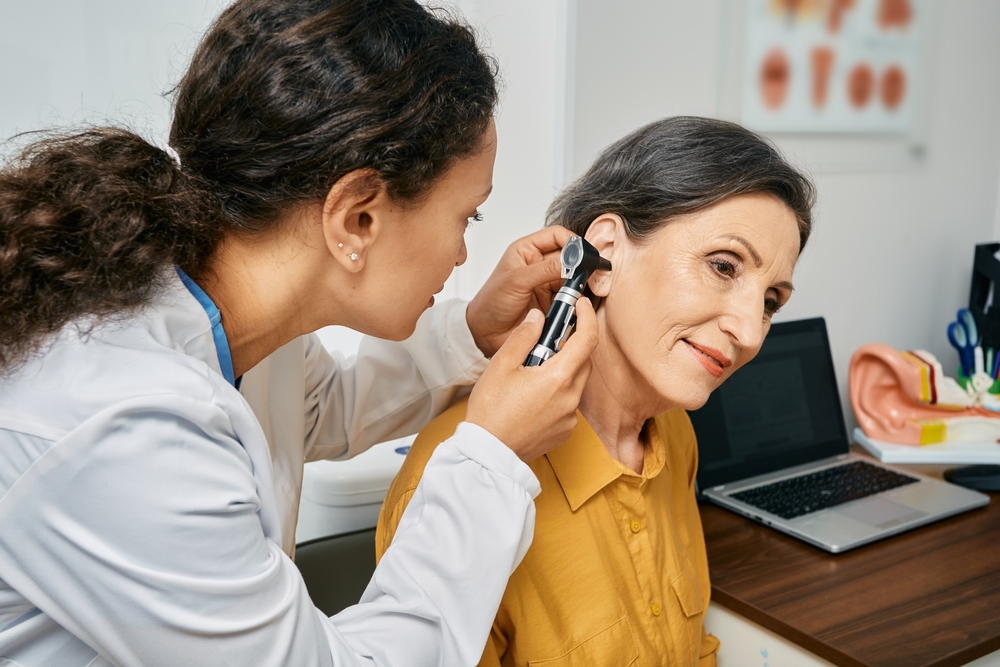 Healthy ears should be a part of your future. Maintaining a robust ear and hearing health becomes necessary to prevent hearing loss. And because hearing loss can devastate a person’s quality of life, taking proactive measures to protect your ears is recommended.
Healthy ears should be a part of your future. Maintaining a robust ear and hearing health becomes necessary to prevent hearing loss. And because hearing loss can devastate a person’s quality of life, taking proactive measures to protect your ears is recommended.
Developing healthy hearing habits doesn’t only include your ears but also your overall health. Beyond keeping volumes low and wearing ear protection, you can take other steps to ensure a sound future for your ears. Learn about all the essential health tips for a promising future.
Essential Tips to Support Hearing Health
When talking about hearing health, high volume can be detrimental. A noise-induced hearing loss may be possible with prolonged exposure to loud noises. Follow this list of tips to perform some noise control.
1) Don’t crank up the volume of your audio devices
Excessive noise damages your hearing over time. In 2015, the World Health Organization warned us about high volume risks. So, keep the volume low on your headphones and speakers. 60% of the maximum level is ideal for your listening devices.
2) Take regular breaks from noisy environments
This also includes taking breaks from extended listening to music and whatnot. Find a quiet spot if your home or workplace is often exposed to loud noise. This spot will be where you can take a break from noisy activities. Protect your ear with plugs or another protective device if a quiet place is unavailable.
3) Use good quality ear protection
If you wear ear protection, ensure your protective device adequately shields you from noise. Select high-quality earmuffs or noise-canceling headphones that give you total protection. Or go for professional-grade earplugs. Customized options for earplugs and earmolds are also available.
4) Wear earplugs and listening devices correctly
People may take this for granted. But putting on a plug on your ears for listening or other purposes accurately helps protect your hearing.
- Clean your hands before you touch the plug
- Roll the plugs to make it soft and more accessible to insert
- Insert carefully into your ear canal
- Go slowly and gently, avoiding pushing in too far
- After insertion, allow the plug to expand and adjust to your ear canal
5) Don’t let water get in your ears
Dry ears prevent infections. When water gets in your ears, a perfect environment for bacteria and fungi to thrive appears. And this is what leads to painful ear infections and other hearing complications. Furthermore, if water enters your ears, an excessive earwax buildup may affect your hearing, causing maximum discomfort.
Therefore, covering your ears when you’re exposed to water is recommended. Put on earplugs or swim caps while swimming. And dry your hair thoroughly after showering with a towel and hairdryer.
6) Use safe ear-cleaning methods
Earwax in your ears can be uncomfortable, but your body produces ear wax naturally to protect and clean the ear canal. When too much wax accumulates, the buildup can cause earaches, blockages, and temporary hearing loss. But cleaning your ears with a cotton swab may do more harm than good, so you must employ safer methods.
- Avoid putting any objects (fingers or cotton swabs)
- Use a soft cloth to clean the other part of the ear to allow the wax to be expelled naturally
- Consider using over-the-counter ear drops or irrigation to clean your ears
- Seek professional help from an audiologist or an Ear Nose Throat specialist
Top Tips for a Healthy Hearing
Here are some things you may not have thought of that can protect your ears.
7) Maintain a healthy hearing lifestyle
Maintaining your overall health can do wonders for your hearing health. This means developing general healthy habits because continuing them may compromise your ears. As you develop these new lifestyle habits, you may also avoid more serious illnesses like autoimmune or heart disease.
- Take these steps to revolutionize your life in support of your hearing and overall health:
- Avoiding recreational drugs and excessive alcohol consumption
- Quitting smoking as it has been linked to the risk of hearing loss
- Eating foods that support your ears’ health
- Exercising regularly, which can improve blood flow to the ears
8) Take a hearing exam and have hearing checkups
Lessen the risk of hearing loss and ear disease by going on regular checkups. And to take it one step further, take a hearing exam periodically. You can find audiology services in hearing centers, clinics, or hospitals.
Both checkup and examination will allow you to identify any issues with your hearing. Early detection can mitigate more serious hearing issues like infections or permanent hearing loss. As aging also affects hearing, regular checkups and exams as you gain more years can help you track what changes occur to your hearing and how to address them.
Get in touch with an experienced audiologist or a hearing healthcare professional. Or take a hearing quiz first before you contact them.
Final Thoughts
Go further than avoiding loud sounds, controlling sound levels, and wearing ear protection to preserve your hearing ability. Visiting audiologists or hearing specialists for professional cleaning, checkups, and hearing examinations can save your ears from hearing damage.
And if you already have difficulty hearing, plenty of hearing aids are available for you to choose from. Contact the hearing professionals at El Dorado Hearing in Tucson, AZ, to help you with your auditory health.




Leave a Reply